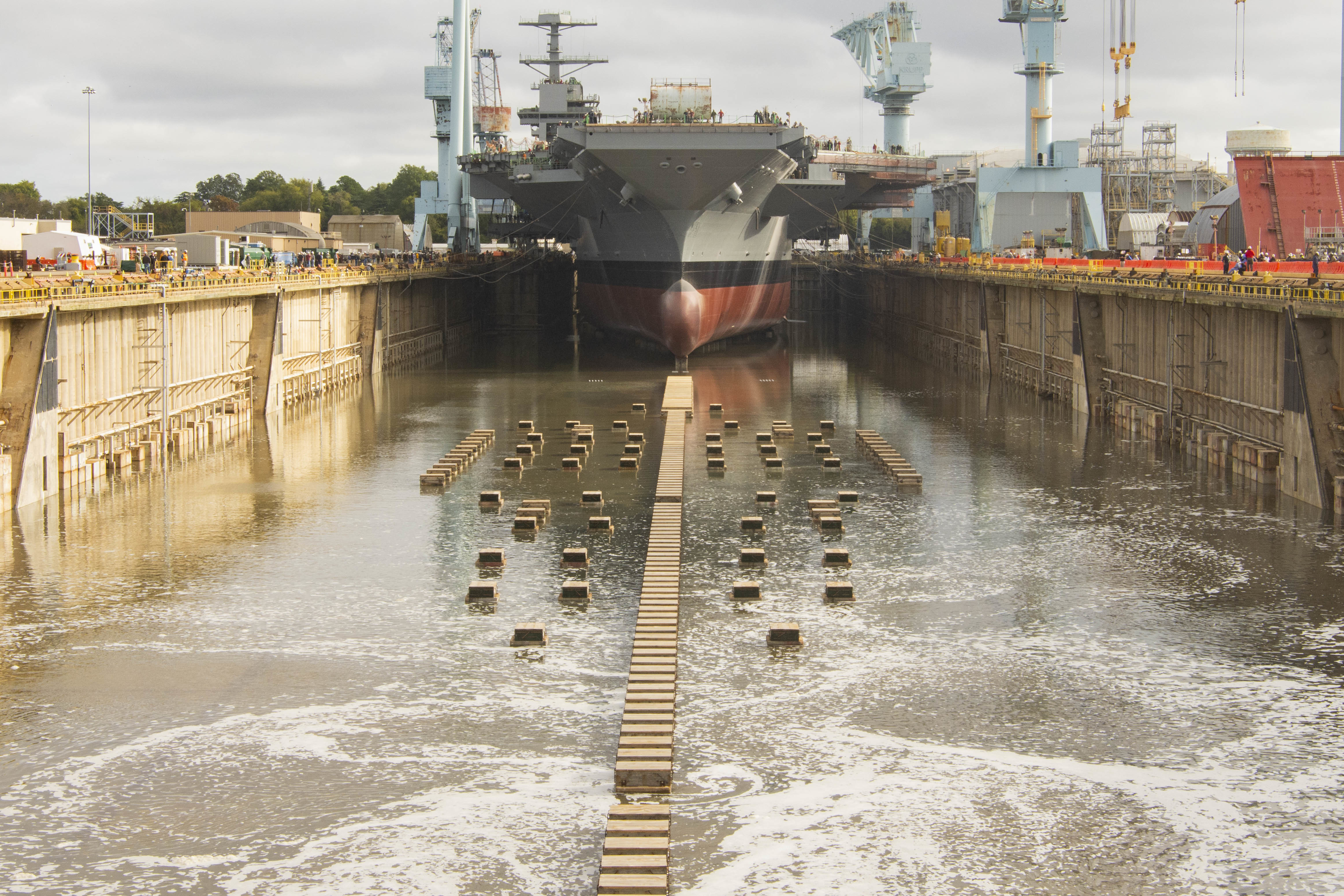
THE PENTAGON – After years of delays, the Navy’s top weapons buyer is optimistic enough about the Ford-class aircraft carrier production that he’s now considering reworking when high-tech electronics systems are installed on the hulls.
USS Gerald R. Ford (CVN-78) is expected to complete sea trials this week and return to Norfolk to start its next phase of being prepared for deployment. Meanwhile, shipbuilders in Newport News, Va., are flooding the drydock that’s currently home to the future John F. Kennedy (CVN-79). The second-in-class carrier is preparing for a christening ceremony, said James Geurts, assistant secretary of the Navy for research, development and acquisition, during a media roundtable Monday.
The program has, for years, raised the ire of lawmakers on Capitol Hill, who’ve repeatedly bemoaned delays finishing Ford and cost overruns worth billions of dollars. The price of building Ford increased to $13 billion, with a first deployment expected in 2024, six years later than initially expected.
“We’ve got to be accountable and be trustworthy and be transparent,” Geurts said.
“Affordability and making sure we aren’t out-pricing ourselves is an important aspect of our future capitalization. So, driving for affordable systems is very important.”
Ford is entering an 18-month post-delivery test and trials (PDT&T), which Geurts said will result in the crew and shipbuilder working out any remaining issues. The most notable concern, problems with a majority of the ship’s advanced weapons elevators, will be solved by the time Ford finishes the PDT&T, he said. Currently, four of the ship’s 11 elevators work.
When Ford finishes the PDT&T, the ship will continue preparing for deployment, including certifying the crew and air wing and undergoing shock trials at sea.
“We’ve done everything we know how to do on the ground side of that; I want to do it on the deck,” Geurts said.
The development of new technologies for the class has stabilized enough for Geurts to focus on saving as much money as possible by streamlining the shipbuilding process. For starters, he’s considering if there’s a better way to deliver Kennedy to the fleet.
Four years ago, the Navy outlined a plan to speed up construction of Kennedy but then wait to install electronics equipment until just before delivery – a dual-phase delivery.
When the Navy’s Fiscal Year 2016 budget was unveiled, Navy officials were concerned that if Kennedy was completed too soon, there would be a staffing overlap with USS Nimitz (CVN-68), which is the next carrier expected to retire. Nimitz was commissioned in 1975. However, the sped-up construction rate was optimal for the shipyard and would result in reduced costs.
Now, with Ford not expected to deploy until 2024, Kennedy’s construction moving along, and a two-carrier buy authorized for the next two ships in the Ford-class, Geurts said it’s worth revisiting the delivery process.
“I’m personally looking at whether we should do a single-phase delivery versus a dual-phase delivery,” Geurts said. “We may look at that based on our learning curve. It’s a little bit of an art, between I want to get a system on soon, but I don’t want it to be outdated by time we get out there. And it’s a really hard problem.”
Deciding to shift back to a single-phase delivery, which was how Ford was built, really depends on how well the shipbuilding teams are working and the lessons learned from the Ford production, he said.
“I’ve given Rear Adm. (James) Downey, the new [program executive officer for aircraft carriers], free reign to do smart,” Geurts said. “If there’s an area where we’ve learned something new, or circumstances have changed, or we’ve got a better idea, I want to be aggressive on pivoting on that and not just sticking with the old plan just because it was the old plan.”





